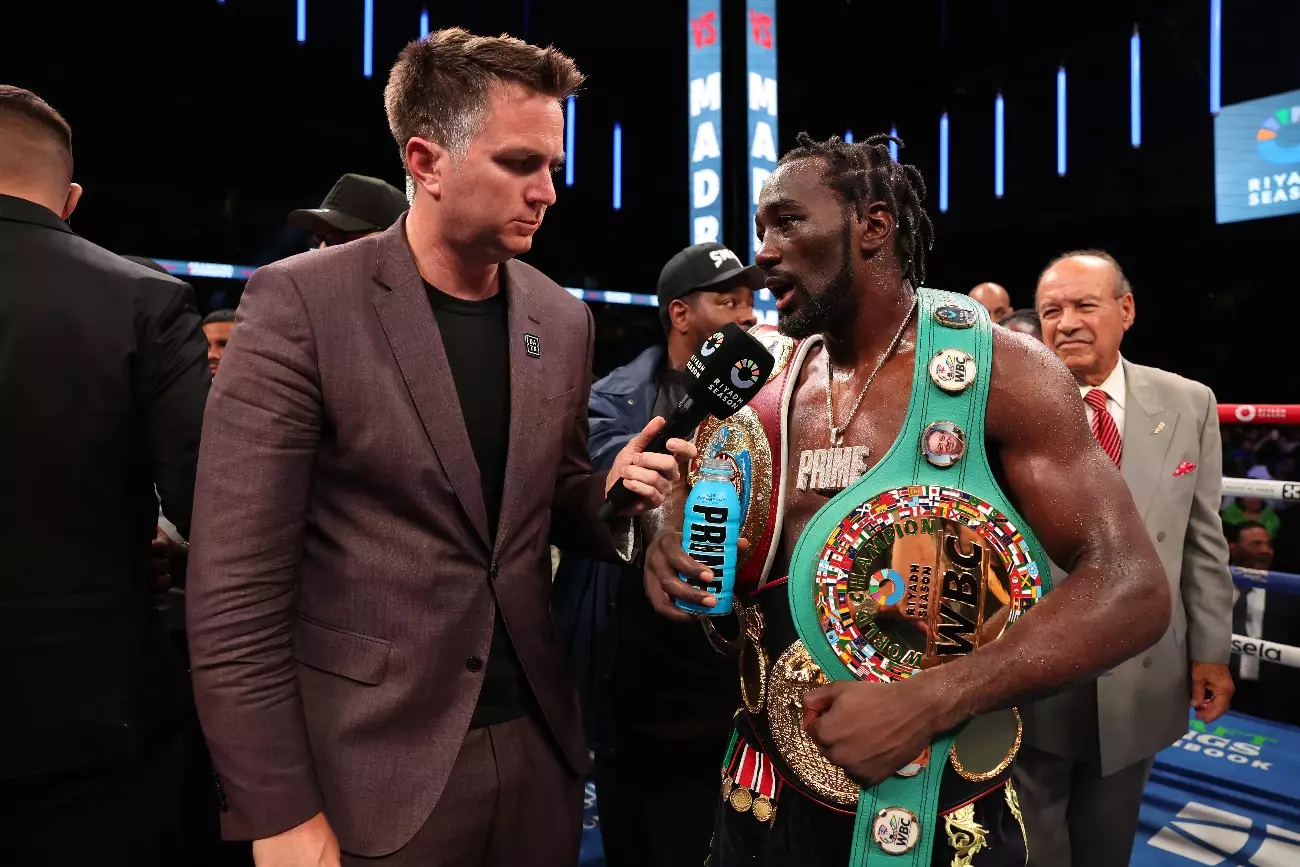BY BOXING HIT STAFF-
In the realm of professional combat sports, the line between boxing and mixed martial arts (MMA) often becomes blurred, leading to unusual crossover fights that generate buzz and controversy. Recently, Terence Crawford, a dominant figure in boxing and often regarded as the pound-for-pound best, was offered a lucrative two-fight deal with MMA star Conor McGregor. This deal included one bout adhering to traditional boxing rules and the other taking place in the unforgiving cage under MMA regulations. Crawford’s response to this tempting financial offer has sparked considerable discourse within the sports community and beyond. It is a testament to his character that he firmly declined the opportunity, despite the allure of financial gain.
Understanding the Risks Involved
When Crawford discussed the nature of the proposed matches, his rationale became clear. In a candid conversation on YouTube with Bernie Tha Boxer, he expressed, “I told Conor, ‘Hell, no.’ Man, I ain’t getting into no f*****g Octagon with you.” This reaction highlights Crawford’s acute awareness of the risks associated with engaging in a sport where he is at a distinct disadvantage. Unlike in boxing, where his skills and prowess shine, the MMA arena poses an entirely different challenge, featuring kicks, elbows, and an array of grappling techniques. Despite the allure of “hundreds of millions” in potential earnings, Crawford’s refusal underscores a crucial point about professional athletics—safety and legacy should often take precedence over temptation.
Crawford’s mutual respect for McGregor and understanding of their respective sports is key to this dialogue. Both fighters recognize the specialized skills required for their disciplines. He noted, “You respect my sport just like I respect your sport,” emphasizing that both men are cognizant of the disparate advantages they hold in their realms of expertise. This mutual respect is not only admirable but essential in maintaining the integrity of both sports. The fight game is rife with challenges to fighters’ identities and legacies, making Crawford’s decision to remain firmly entrenched in boxing and avoid MMA commendable.
Crossover fights, once a novelty, are rapidly becoming clichéd as mainstream audiences grow weary of their repetitive nature. The infamous battle of Mayweather vs. McGregor in 2017 was a watershed moment, illustrating the hype surrounding cross-gender athleticism but ultimately ended up being a lopsided spectacle. Following that event, there has been a burgeoning trend of matchups that prioritize entertainment value over sporting integrity. Fighters with distinct origins and strengths are placed in unfamiliar roles where they risk more than just a loss; they jeopardize their legacies and reputations.
Crawford’s rejection of the offer reflects a potential shift back to valuing traditional frameworks of boxing and MMA. His perspective serves as a refreshing reminder that athletes can draw a line between lucrative opportunities and the preservation of their craft.
Looking ahead, Crawford’s choices bear significant implications for both his career and legacy. With a promising future ahead of him, his decision indicates a focus on maintaining an unblemished record within the boxing realm. Whether he participates in another match or steps away from the ring entirely, his conscious choice to prioritize respect for himself, his sport, and his fans reveals a deeper understanding of what it means to be an athlete.
Moreover, Crawford’s stance opens a discussion about the evolving landscape of combat sports and the effect of money on decision-making. As the fight scene grows increasingly saturated with crossover events geared towards maximizing profits, the heavyweights of combat sports might hint at a counter-movement that upholds the values of traditional competition over spectacle.
A Lesson in Integrity
In an industry where the siren call of wealth and fame usually drowns out moral compass, Terence Crawford’s response to the offer stands as a beacon of integrity. His refusal to engage in a potentially embarrassing or damaging situation inevitably speaks volumes to aspiring fighters, revealing the importance of valuing skill, safety, and reputation before profit. Ultimately, as he navigates through the latter part of his career, Crawford’s choice reminds us all that sometimes, standing firm against temptation illustrates strength far beyond monetary gain.


Leave a Reply